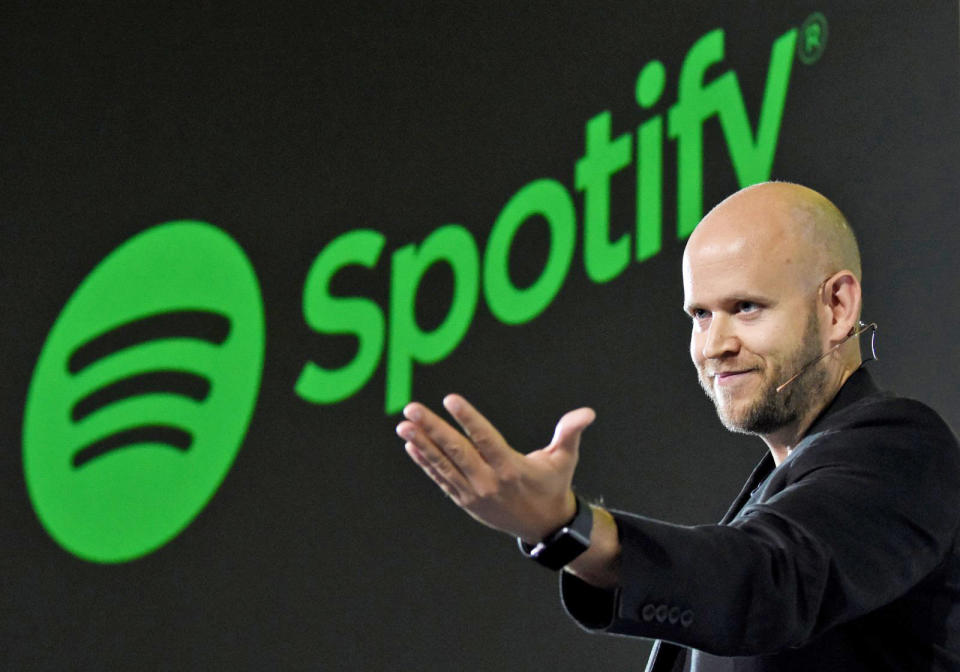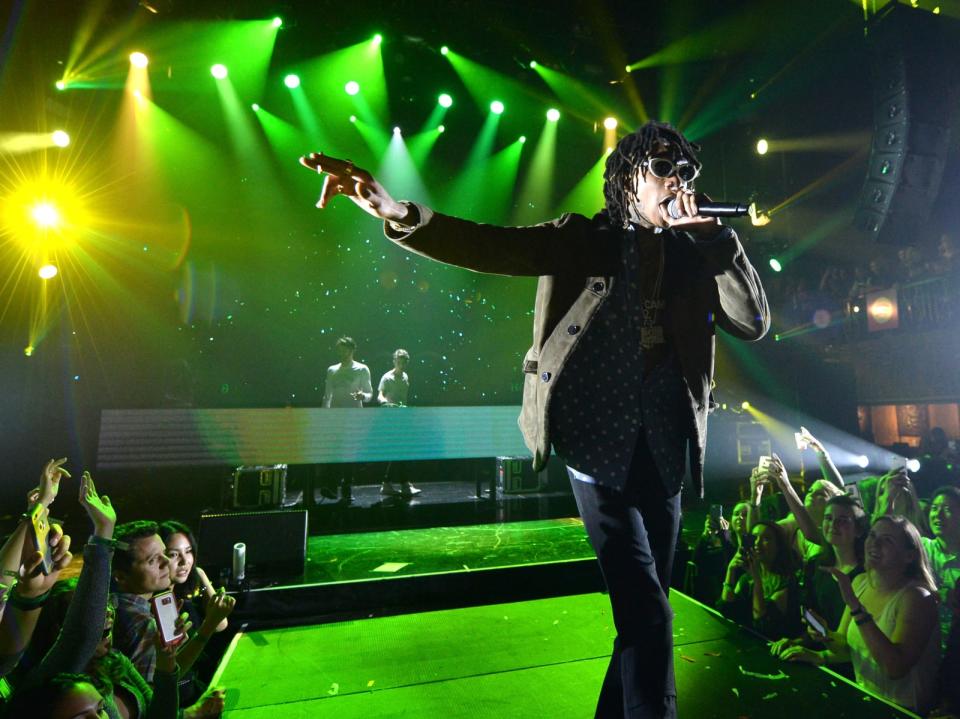Spotify is limiting free streaming for its own good
Licensing deals are up, and the company caved to a label demanding better terms.

It's no secret that labels and artists aren't thrilled that their music is available free on ad-supported streaming services. Taylor Swift famously pulled her catalog from Spotify due to its decision to give full on-demand streaming to customers who weren't paying for a monthly subscription. And she's not the only one. The debate over streaming royalties has been going on for a while now. That's on top of the issues free options raise -- chief among them is artist compensation. When it comes to Spotify's decision to cede on free streaming, it was a matter of when, not if, this would happen to appease the labels.
As part of its new licensing deal with Universal, artists on the label will have the option of making releases exclusive to paying Spotify customers for the first two weeks. However, new singles will still be available for anyone using the streaming service. That means if Katy Perry drops a new song and everyone is tweeting about it, you won't be left wondering what all the fuss is over. Spotify didn't disclose any financial terms, but reports mention the streaming service may pay reduced royalties in exchange for caving on the free tier.
"Today, streaming represents the majority of the business. Our challenge is transforming that upturn into sustainable growth," explained Universal Music Group chairman and CEO Sir Lucian Grainge. "In a market this dynamic, one evolving more rapidly than ever before, success requires creative and continual re-evaluation of how best to bring artists' music to fans."

It's no secret that streaming is the music industry's biggest earner. Streaming sales surpassed CDs for the first time in 2015 and a year later, it topped all forms of music consumption. For months now, the Recording Industry Association of America (RIAA) has reported streaming is providing artists? The industry? a much-needed financial boost . In fact, the governing body announced last week that streaming in 2016 helped the industry see its best growth since 2009. This means the labels have to be willing to make deals that ensure streaming continues to grow while still protecting their own bottom line.
"At UMG, we've not only reimagined distribution models and technologies, but entire business models. The only constants must be great music and fair compensation for artists and creators," Grainge continued. "To that end, the long-term success of Spotify, and others like it, is essential to the ecosystem's enduring health."
Sure, streaming is helping financially, but it's also providing a massive marketing push. Apple Music's Beats 1 radio station has turned into a massive promotion tool for artists. The Verge recently detailed the ties between the internet radio station, a show that Drake hosts on a regular basis and the fact that his most recent album shattered streaming records. Of course, Apple Music doesn't have a free a la carte streaming option, but Beats 1 radio is available to stream at no cost. Spotify doesn't have its version of hosted internet radio, but those singles and other content, like Spotify Sessions and video, go a long way in terms of getting the word out.
Universal isn't the only label Spotify has to come to terms with. The company faces new deals with both Sony and Warner Music Group, which means this week's agreement could serve as a template for those talks. If it does, it's possible that that most of the high-profile releases would be limited to Spotify Premium for the first two weeks after they're released. If you're already a Spotify customer, you're well aware of the two-week wait that Apple Music exclusives typically demand. It's unclear if that means the likes of Drake and others will have the option of holding their music from the free tier for a full month if they decide to give Jimmy Iovine and Eddy Cue first dibs.

Wiz Khalifa and The Chainsmokers perform (Photo by Kevin Mazur/Getty Images for Spotify)
It's in Spotify's best interest to get these deals locked down quickly. The company is hoping to finally go public this year, and it will have an easier time attracting investors with long-term licensing agreements in place for its massive streaming library. While reports initially suggested the company would go the IPO route, the latest rumblings indicate it may opt for a direct listing instead. That move wouldn't make stock available ahead of time or require any additional funds and underwriters to put out new blocks of stock. This licensing deal with Universal includes incentives for Spotify to reduce royalty payments if it hits certain revenue targets. In other words, it will be paying out less in fees, something the service made clear is keeping it from being too profitable.
While free, ad-supported streaming isn't going anywhere (hello Pandora!), the ability to have immediate on-demand access to new albums when they are released is likely on its way out. At a time when streaming is big business for the music industry, the terms of old deals won't cut it for either side if they want to sustain growth.
Nothing will necessarily change for paying Spotify customers. But if you've been living off the free tier, you have a decision to make: Do you cave and start paying $10 a month for full access or do you wait out the two weeks with a few new singles to keep you warm? Two weeks may not seem like a long time -- until the new Adele, Lady Gaga or some other highly-anticipated album drops and you're stuck waiting while all your friends are tweeting about how good it is. However, I'll still bet more than a few users are willing to save $120 a year even if they have to wait a few extra days on new music.
